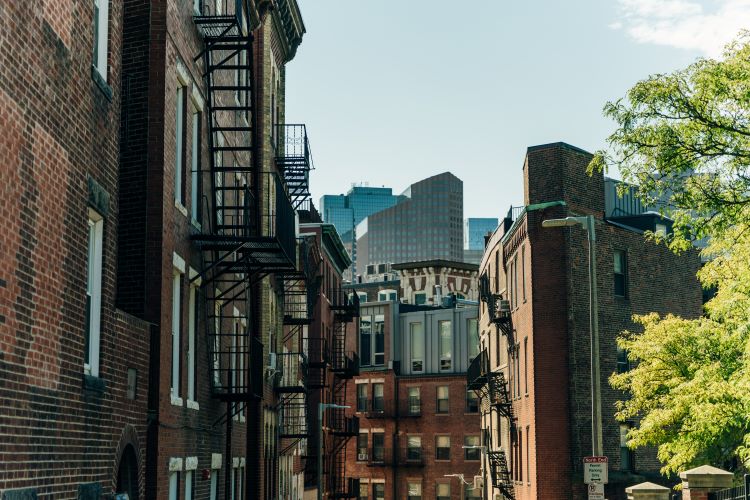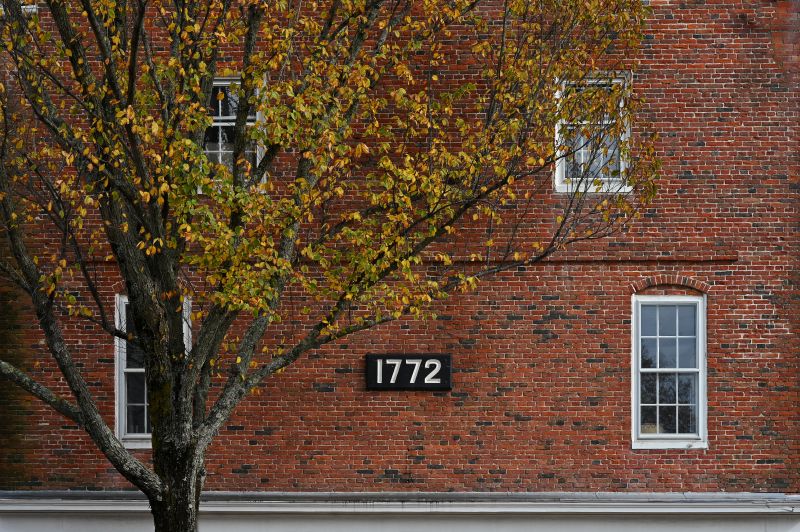
***UPDATED*** This market report has been updated, check out our 2024 Boston Apartment Rental Market Report!
As of the first week of January, Boston’s apartment rental market seems to picked up right where it left off in 2022. Boston’s average rent price continues to push to new record highs with each passing week while apartment inventory is at an all-time low for January. Even as economic conditions have worsened and rent prices have declined nationwide, Boston rents have continued to climb due in part to the historically low new apartment supply we’re experiencing.
Still, rent price growth has rapidly decelerated over the past few months in Boston. Based on current energy and fiscal policies, an economic resurgence is unlikely to happen any time soon. The problematic and confusing economic policies coupled with inflation also suggest that Boston’s rent prices are about to stagnate and possibly fall.
Let’s take a closer look at the main trends driving Boston’s apartment rental market in 2023.
Boston Rental Supply Kicks Off 2023 At Historic Low For January
The real-time availability rate (RTAR) for Boston apartments currently sits at 2.04%. That marks a –10.13% drop in RTAR over the past 12 months and the lowest apartment availability on record for Boston in January. Boston appears to have an almost insatiable draw of renters regardless of economic conditions.
The real-time vacancy rate (RTVR) in Boston currently sits at 0.55%, which is also a historic low for January. That figure has dropped by -32.93% year-over-year. People seeking an immediate move into Boston should be fully prepared to put down a deposit very quickly or it may not be available within the same week.
This supply crunch has been prevalent since late 2021 when pandemic restrictions eased, allowing students to return to Universities and remote workers to return to the office. Both RTVR and RTAR hit all-time lows in Boston during the peak of the 2022 rental season. There is also considerable amounts of “renters fatigue” with a lot of people that don’t want to move apartments again due to rapid exodus during the pandemic. We have witnessed a record number of tenants renewing their leases. It is often very costly to move from one apartment to another and many people find it disruptive to their routines and lifestyle. We expect to see more inventory and apartment turnover in 2024 as people tend to move out of the same unit after 3 years. However, 2023 will remain tight due in part to the vast amount of people that moved in and out of our city over such a short period of time.
Boston Average Rent Price Continues to Climb
With new rental housing supply figures so low, Boston’s average rent price is essentially forced to go higher, even in a down economy. The current average rent price in Boston is $2,887, which is up +13.36% compared to January 2022 and continuing to move slightly upward each week. According to the most recent Boston apartment data, rent price growth has shown telling signs of considerably slowing over the past few months. This could be signaling that prices turn downward in 2023. We still have the very real problem of incredibly high utility costs due to poor energy policy and this could eventually reduce demand for apartments.
| DATE | AVG RENT PRICE STUDIO | AVG RENT PRICE 1BR | AVG RENT PRICE 2BR | AVG RENT PRICE 3BR | AVG RENT PRICE 4BR | AVG RENT PRICE 5BR |
|---|---|---|---|---|---|---|
| 1/1/2023 | $1,985 | $2,349 | $2,864 | $3,394 | $4,118 | $5,130 |
| 1/1/2022 | $1,720 | $2,024 | $2,522 | $3,064 | $3,669 | $4,467 |
| % Change | +15.41% | +16.06% | +13.56% | +10.77% | +12.24% | +14.84% |
Another potential issue that we are witnessing is the slow down in residential sales of properties due to high interest rates. There are a lot of discouraged buyers out there that feel they missed the lower interest rates. Many potential buyers are renewing their leases for another year and hoping for either sale prices to go down and/or interest rates to come down. This year could be a “in the trenches” time of waiting patiently to see if any pattern breaks in one direction or another.
Boston Rental Market Trends in 2023
To say it’s been a turbulent few years for Boston’s rental market would be an understatement. In late 2019, we were experiencing the strongest rental market the city has ever seen with record high rents and unprecedented low inventory. We saw that strong apartment market get eviscerated in 2020 due to COVID. Our city witnessed a flight to the suburbs and the rise of remote learning and remote work. We then experienced an unprecedented market resurgence in the middle of 2021 that led us to our current apartment shortage and subsequent record high rents. Words can’t encompass the massive shifts in housing patterns we have been through over the past several years. The question on the minds of everyone that cares about real estate is “where do we go from here?” What is the real time data suggesting? What national or local forces could impact the direction of our rental market?
Here are the main trends in 2023 that will affect Boston’s apartment rental market.
1. Boston’s Apartment Rental Supply (or lack thereof)
Arguably the greatest obstacle the Boston rental market faces moving forward is the apartment supply shortage. Lack of supply due to a myriad of local factors is the main catalyst that’s driving up the average rent price in Boston. With the real time availability rate (RTAR) and real time vacancy rate (RTVR) at record lows there appears to be no quick or easy solution in sight. Even more concerning is the fact that Boston’s Planning and Development Association (BDPA) recently released their numbers for new housing units approved in 2022, and they are down -44% from 2021 and -68% from 2020.
When you consider that it often takes 2-3 years for proposed projects to get through our permitting and construction process, this does not bode well for the housing supply shortage over the next few years. The BDPA touts that in 2022 the city approved the highest percentage of income-restricted units in the past decade. They fail to mention the sharp drop in overall permits issued compared to previous years. Developers all across the state are finding it nearly impossible to make the math work on new developments. The onerously high affordability requirements at a time of high energy costs, runaway inflation and coupled with a labor shortage are making pencils fall on desks. In interviews with countless developers we are hearing the same thing over and over – the math doesn’t work. Banks are not financing deals that seem too risky.
Mayor Wu and the BPDA will have to focus more on increasing the overall quantity of permits issued rather than percentage of affordable housing permits in 2023. By focusing solely on affordable housing and rent control, the city risks disincentivizing developers who are already facing soaring costs from nearly all angles. The only way to effectively drive down prices when demand is high is by rapidly increasing the supply. This has to be the city’s biggest housing priority this year. We are going to have to start working on coming up with housing policy that adds useable square footage to existing structures. Another solution that keeps getting touted is allow the height requirements of certain neighborhoods to be lifted. Getting our properties as tall as possible using wood instead of expensive steel is another window that could be capitalized upon. There are signs improving lumber prices could help get deals penciled under six stories.
2. National Inflation, Interest Rates & Shrinking Economy
Last year we began to feel the effects of poor fiscal and energy policy in the form of rampant inflation. The CPI hit 9.2% in August and as a result, the Fed raised interest rates 7 times last year in an attempt to corral inflation. The most recent figures for December show that figure still at 6.3%, which means rate hikes are likely to continue for the foreseeable future.
Last year we saw negative GDP growth in the first two quarters, and most economists are predicting that a double dip recession will emerge in 2023. The effects on the housing market are already being felt nationwide. As interest rates increased, median sale prices for existing homes in the US have been declining since July. The economic slump is even affecting the national rental market, as rent prices have declined by the fastest pace in the last 7 years according to an NAA report.
3. Can The Local Housing Economy Stay Boston Strong?
The national economy will certainly have a negative impact on demand for housing in Boston in 2023. The most recent MLS data shows that prices for Boston real estate are already declining, and that trend will likely continue if the Fed continues to hike interest rates.
Demand for rental units in Boston has been less affected by the down economy. While US rent prices declined at the end of 2022, Boston’s average rent price continued its upward trend. Combine that with record low RTAR and RTVR, there is plenty of evidence that demand for Boston apartments is still strong. So why is demand for rentals in Boston outpacing the national average? Here are a few reasons:
1. Increasing Enrollment at Local Universities
The most recent report on Boston student housing trends show that enrollment is still growing at local universities, especially among grad students.
2. Boston Population Still Growing
Despite Boston’s population taking a slight dip in 2021, the city’s residents grew yet again in 2022 and is projected to continue growing over the next few years.
3. VC Funding Still Flowing to Boston –
The most recent venture capital figures from Pitchbook show that Boston is ranked #4 among all US cities in terms of venture capital funding. Total VC funding invested
was down in 2022, but Boston remains a favorite city for startups, especially those in the biotech space.
4. Boston Unemployment Dropping
According to the most recent data from the Department of Labor, Boston’s unemployment rate decreased throughout last year. It currently sits at 2.7 which is close to the pre-pandemic unemployment rate of 2.3 recorded in December 2019.
5. Priced-Out Buyers Are Renting
As interest rates rise, more potential buyers are opting to rent. This is especially true in Boston where median sale prices are well above the national average. Until interest rates come down or home prices fall, this will continue to place additional demand pressures on the already tight supply of apartments in Boston.
4. Rent Control – 2023 Version
Boston’s local housing economy will most definitely not remain strong if rent control is brought back to Boston. Mayor Wu said she plans to submit a rent control proposal to the State House when the legislative session opens up in 2023. Last year, she formed an advisory committee to figure out an approach to enacting rent control in Boston. Several “listening sessions” were held last year to gather feedback from local residents and landlords, but the administration has made it clear that they plan on moving forward with rent control regardless of what residents or history tells us.
We’ve discussed rent control in nearly every market report we’ve done over the past 6 years, because it always seems to be on the docket. To reiterate, rent control is an ineffective means to manage rent prices. Boston’s soaring rent prices are mostly a lack of supply issue. The only way to fix it is to approve more projects and get more units into Boston’s apartment inventory.
Restricting rent prices will cause both the quality and quantity of Boston’s rental supply to decline. Our skyline and the appearance of our properties will eventually be blighted as property owners will not be able to put the capital back into their properties for improvements or deferred maintenance. Public safety in housing will once again become an issue as it has for other cities that have tried rent control. Landlords will sell their units when they have to operate them at a loss for years and developers will be deterred from planning large multi-unit properties in Boston. Additional hurdles to development and proper care of properties will eventually cause an even greater supply shortage than exists today. Apartments will eventually fall into disrepair in the exact same manner when we had rent control before in Boston. Property prices will come down and this will cause our tax base to shrink which will result in cutbacks in city services. Boston renters will effectively be getting less appealing and safe apartments for about the same price. True to be told, there has never been a successful implementation of rent control anywhere in America. Many cities across the country have tried it only to repeal it or feel the disastrous effects of rent control. Developers will take their skill sets, innovation, capital and workers to other states. Look to our own history of rent control for proof.
2023 Boston Apartment Rental Market Predictions
Based on the dramatically slowing rental pricing coupled with questionable energy policies and runaway inflation our prediction for 2023 becomes difficult to get a clear picture. Most economists believe that we are in the early stages of a double dip recession. It is hard to know how long the consumer can absorb these unnecessarily high costs due to poor energy policy. Credit card debt is increasing and savings accounts of consumers are not looking as robust as they did a couple of years ago. There is also the looming issue of the endless rumors of tech jobs being cut as demand starts to wane in a wide variety of goods and services. At the same time, it appears that our new housing options maybe heading for a huge decrease due to the same nagging inflationary issues caused due to our poor energy and local development policies. There seems to be a major struggle going on here and perhaps nothing will change until we get a comprehensive energy policy going again that lowers costs across the board for all companies- especially for our construction industry which is incredibly energy intensive. It is impossible to ask developers to increase their affordable housing requirements when their energy, material and labor costs have all gone up greater than 30% in the past two years.
With all the contrarian economic forces and incoherent policies working against each other; it is doubtful we will see any real rent increases going into 2023. Yes, there will be a dearth of existing and new supply of housing. However, there could be the real possibility that many younger workers will stay with their parents to save on rent and utility costs and/or move to more affordable states with better pro-growth policies. There are also a lot of remote workers that can still operate and live outside of Greater Boston with cheaper suburban rents. We predict an either flat to modest rent increase of no more than 3% in 2023. Our confidence in these numbers could easily change if more pro-growth and better supply side energy policies are implemented this year.

Demetrios Salpoglou
Published January 23, 2023
Demetrios has pulled together the largest apartment leasing team in the Greater Boston Area and is responsible for procuring more apartment rentals than anyone in New England – with over 130k people finding their housing through his services. Demetrios is an avid real estate developer, peak performance trainer, educator, guest lecturer and motivational speaker.











